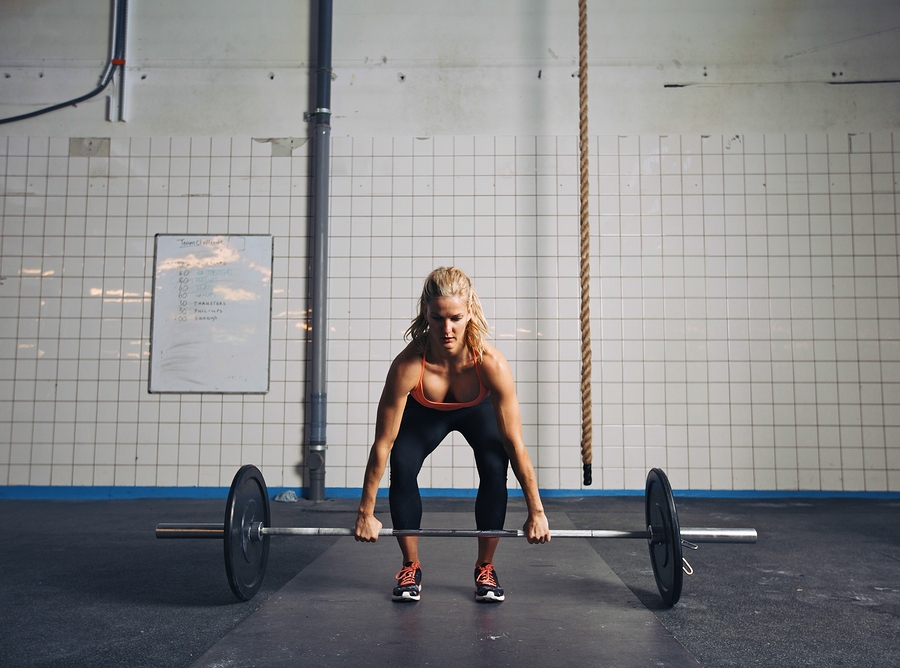Kim Kardashian is all over the celebrity news these days – she’s gained too much weight, she’s crying all the time, and let’s not forget to mention that her pregnancy has triggered an amazing re-growth of body hair. Seriously? Have they no shame to be writing such non-sense? Pregnancy is a very exciting time in a woman’s life and yes, a woman’s body changes! Folks, it’s completely natural. Pointing out that a pregnant woman appears overly hormonal or too heavy is ludicrous – moms-to-be need to feel mentally and emotionally supported during this special time in their life, not judged.

Have you ever met a sassy pregnant woman that glows and exudes sex appeal? You probably have and the reason is sex appeal is not just about physique and good looks – when a woman feels confident, healthy and positive, she comes off as being very attractive. These 10 tips are helpful for women of all ages who are looking to feel strong, sexy and healthy, before, during, and after pregnancy.
1. Eat Sexy Foods – Pregnant women have a greater need for wholesome, nutrient-dense foods such as organic fresh fruits and vegetables, ancient grains, legumes, deep-water fish and organic lean meats.
2. Avoid Toxins – During pregnancy, nicotine, caffeine, alcohol, artificial sweeteners, pesticides, chemicals, and preservatives are to be avoided as much as possible.
3. Naturally Treat Symptoms – Naturopathic Doctors play an important role during a woman’s pregnancy as they can naturally and safely treat common pregnancy-related conditions, such as constipation, leg cramps, headaches, pain, fatigue, anxiety, and depression.
4. Count Calories – From the moment a woman conceives she holds the responsibility of taking good care of her health. To ensure her baby is receiving enough nutrients, mom is advised to eat foods that are twice as healthy, not twice the calories. Generally, only an extra 300-450 calories daily is needed during pregnancy and while breastfeeding.
5. Eat Smaller Meals – Consume smaller meals that are packed with optimal nutrients that support the developing fetus. All meals should consist of high-quality protein (e.g. fish, organic chicken, legumes), complex carbohydrates (e.g. sweet potatoes, brown rice, quinoa), fiber (e.g. oats, bran, flax seeds, psyllium), and good fats (e.g. almonds, walnuts, olive oil, avocados).
6. Consume Adequate Protein – Caloric requirements during pregnancy vary considerably from person to person, as do protein requirements. Most pregnant women aim for 75 – 85 grams of protein per day, depending on their activity level and individual needs. Adequate protein consumption is associated with a decreased risk of pre-eclampsia (pregnancy induced hypertension) and reduced sugar cravings. Greek yogurt mixed with chia seeds and fresh organic fruit is a fantastic high-protein snack.
7. Take Supplements – Mom and baby require additional probiotics, vitamins, minerals and supplements that cannot be obtained through diet alone. Essential vitamins and supplements may include a high-quality, pharmaceutical grade multivitamin with extra folic acid, vitamin D, calcium/magnesium, iron, zinc and omega-3 essential fatty acids (EPA/DHA). For women who take extra DHA during pregnancy, the latest research shows that a 2:1 ratio of EPA:DHA is more beneficial for post-partum depression prevention. Therefore, it is recommended to take more EPA than DHA throughout pregnancy.
8. Prevent Constipation – Consuming 30-40 grams of fiber per day will ensure bowels are moving. Pregnant women commonly suffer from constipation and digestive disturbances. Liver cleansing foods in pregnancy also support healthy digestion – beets, dark leafy greens, and detoxifying lemons are encouraged.
9. Engage in Physical Activity – A well-designed prenatal exercise program has many benefits, including building stamina, preparing the body for labor, boosting energy, preventing potentially serious complications, and relaxing the mind and body. Cardiovascular exercise combined with strength training provides the greatest benefit during pregnancy and may reduce recovery time post-delivery. Increasing strength and developing more lean muscle mass will also enhance fat burning after delivery. For safe and effective strength training exercises, it is a good idea to consult a certified personal trainer who specializes in pre/post natal fitness. For women who did not exercise pre-pregnancy, they should check with their doctor before beginning a new exercise program.
10. Do Yoga and Relax – Yoga will not only help mom-to-be get into physical shape, it will strengthen her pelvic floor muscles for an easier childbirth. Yoga is also fantastic for relaxing the mind and helping de-stress. It encourages balance in the body, patience and gentleness – all very valuable for moms-to-be.
After baby has arrived, mom’s body will be recovering from pregnancy. Getting back into pre-pregnancy shape is what most women are thinking about after having their baby, and generally, women can return to exercise within six weeks following childbirth. The question is, who has time for exercise with a newborn, let alone the energy for it? I recommend new mom’s try their best to make time and find the energy for it. Remember, a healthy baby is dependent on a healthy mom. Breastfeeding, regular exercise, and consuming balanced, nutrient-dense meals will all help new mommy get her pre-pregnancy body back and feel energized. Many women actually get into better shape post-pregnancy. After all, carrying a baby, holding diaper bags, and running around will make shedding the weight easier. With a little patience, the right foods, and consistent exercise, glowing new moms will be wearing their pre-pregnancy clothes in no time.



